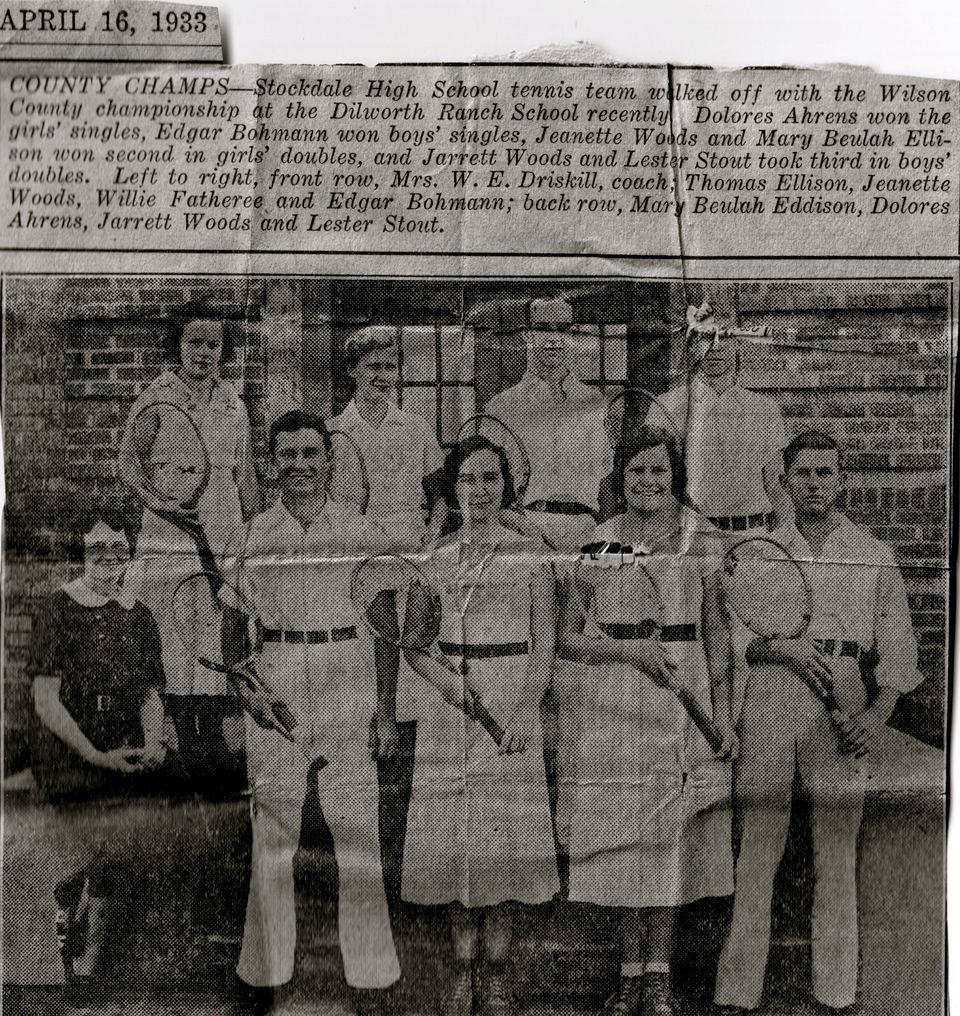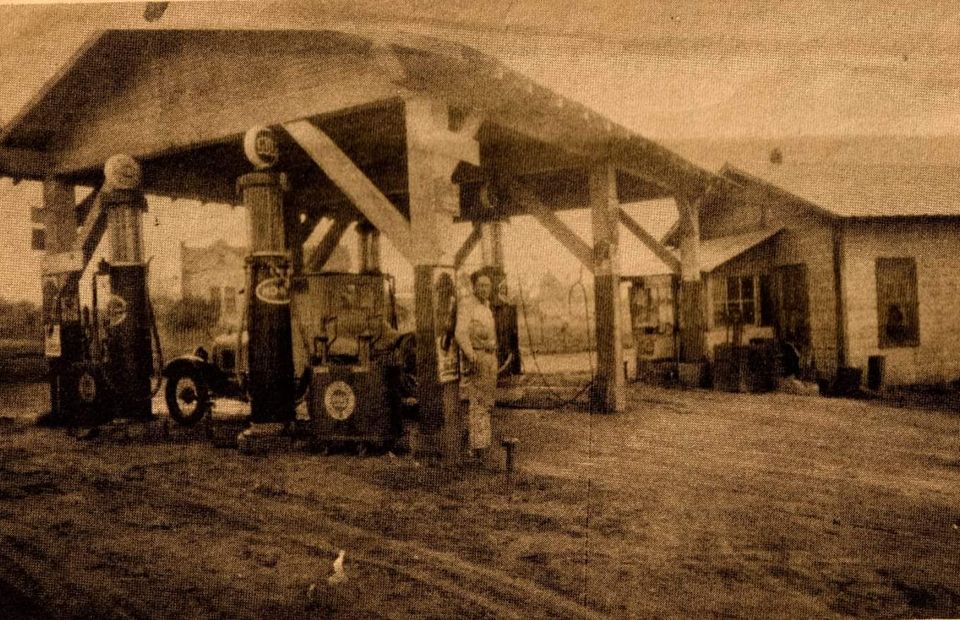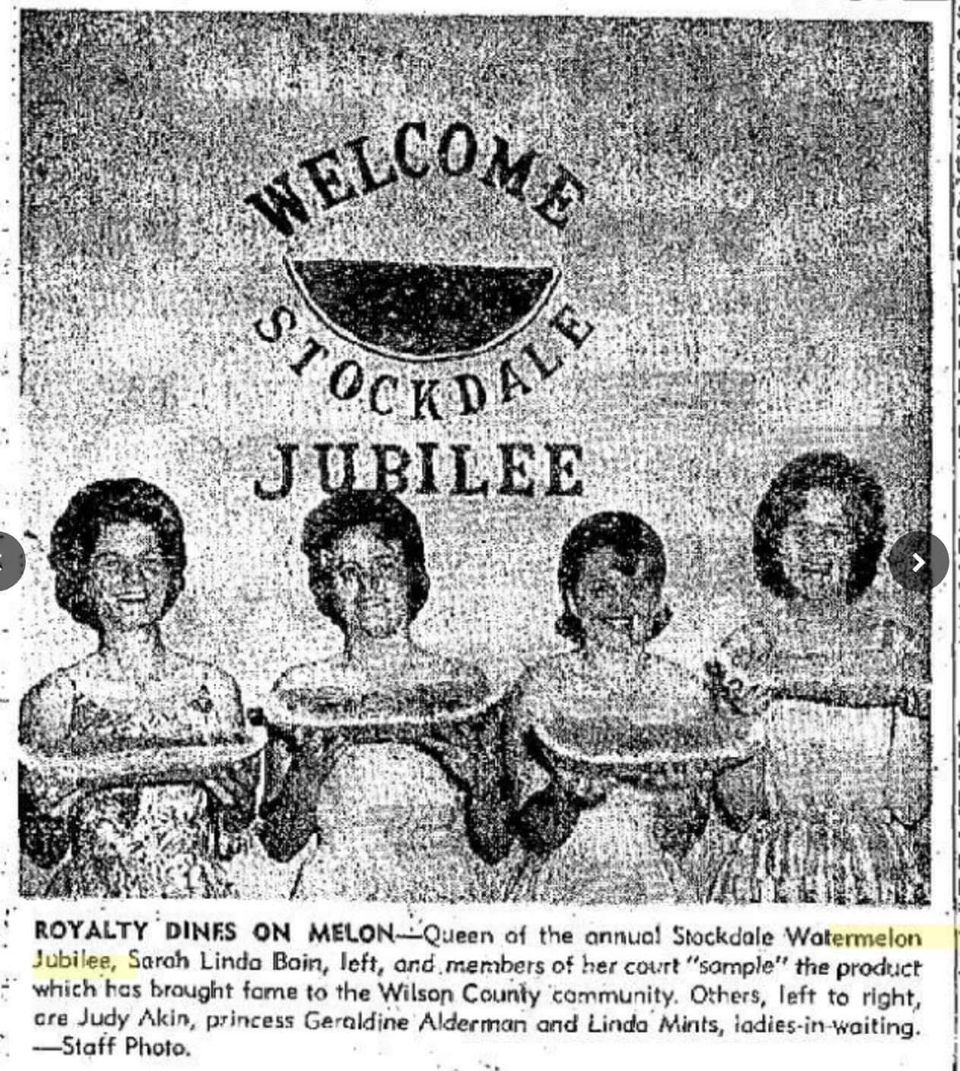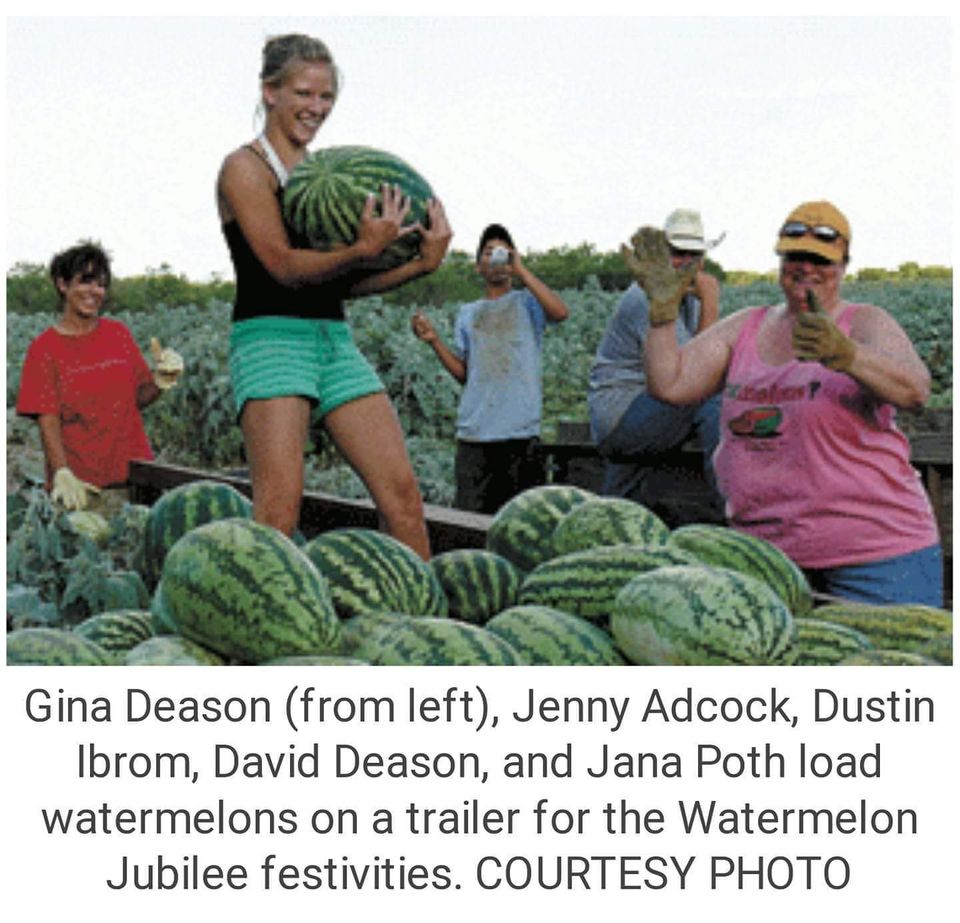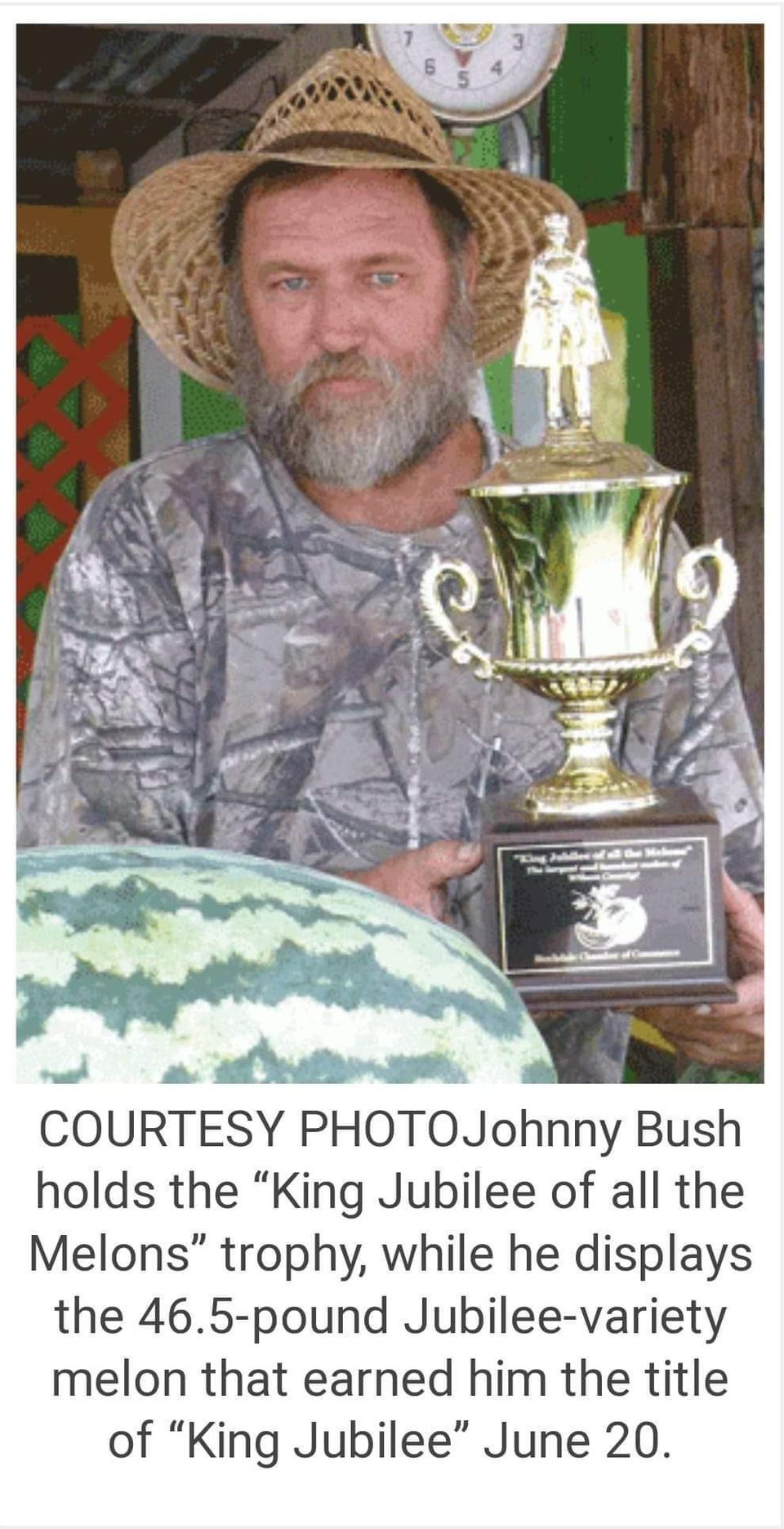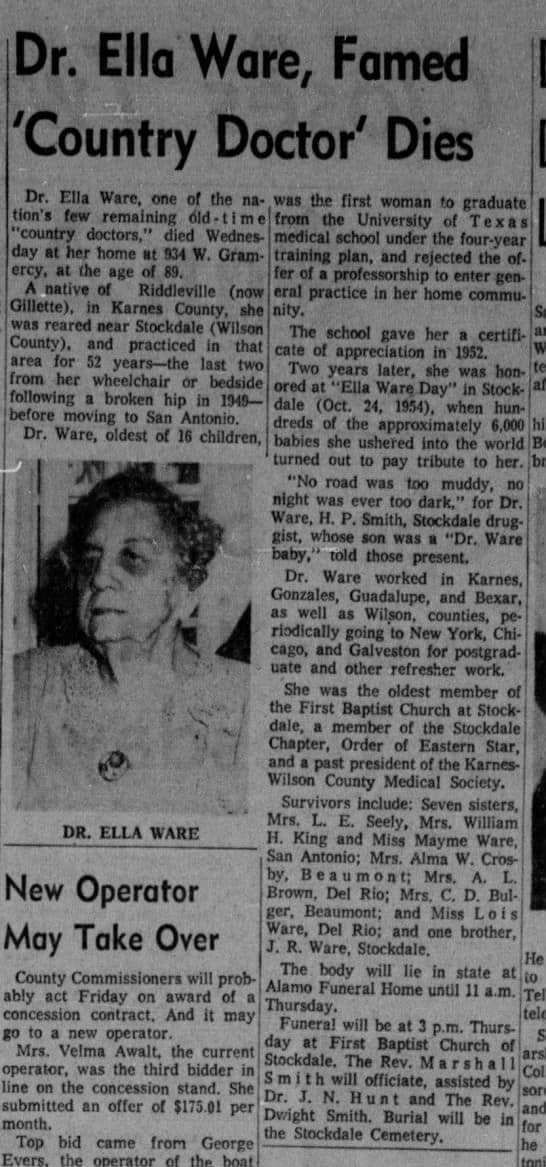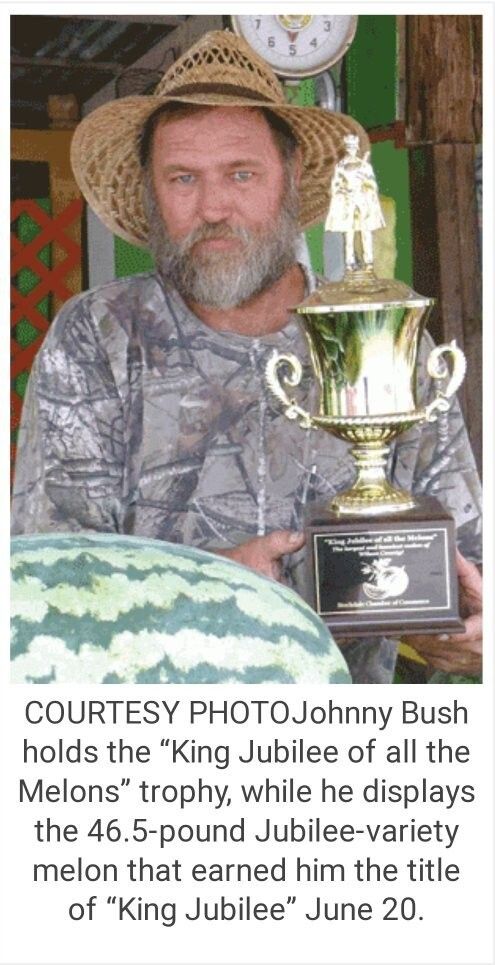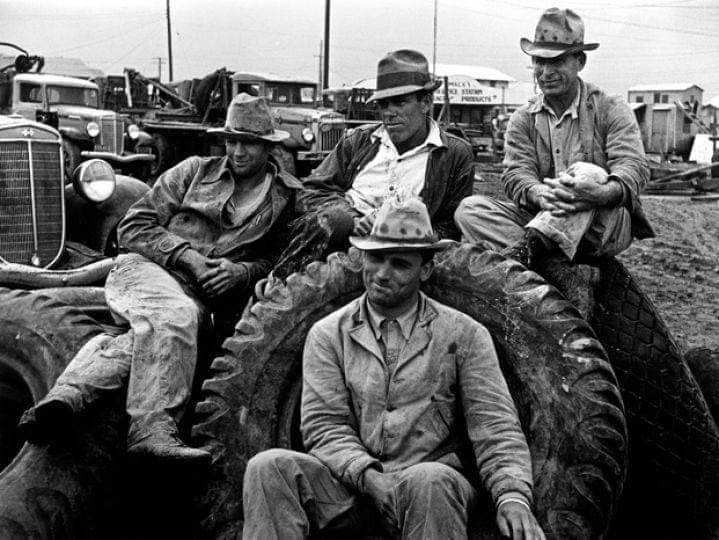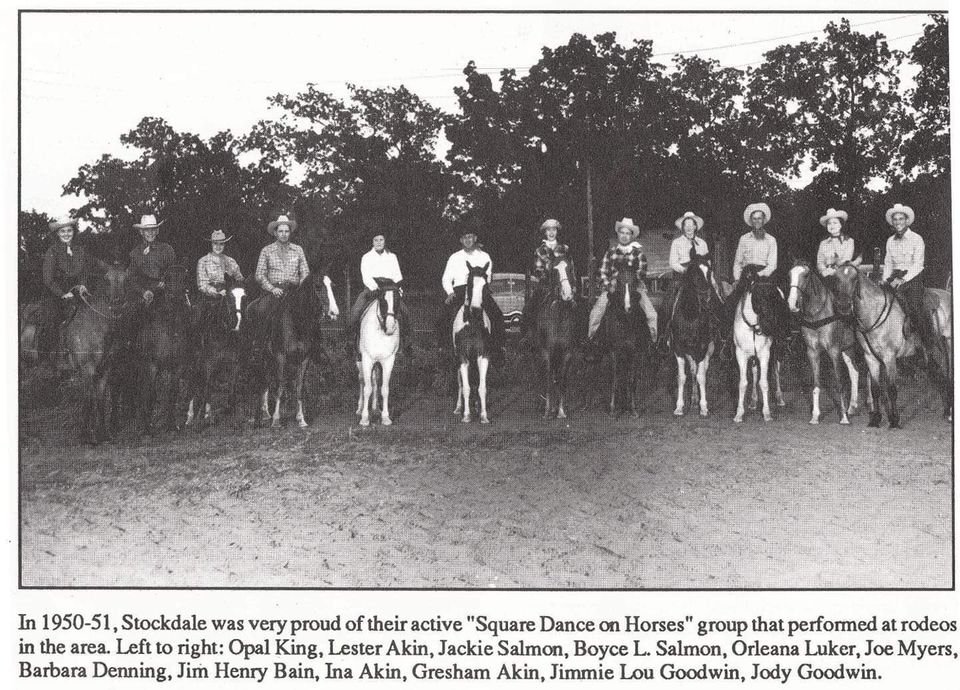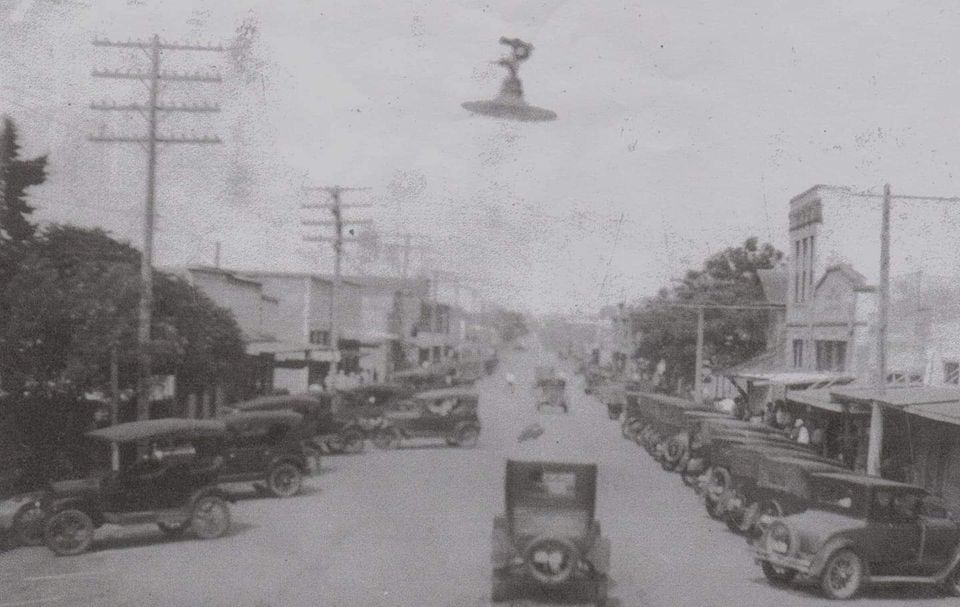Adcock family
Four generations of watermelon growers .... Pat Kopecki of the Wilson County News wrote in 2008 this inspiring article on the Adcock family of Stockdale Wilson County Texas.
STOCKDALE — Queen Melone LXIV Jenny Adcock is no stranger to watermelon fields. Jenny can cut and chuck watermelons with the best of them. This year, Stockdale's queen is a true representative who will not only promote Stockdale, but will represent the watermelon industry as well.
Jenny, the daughter of Ricky and Gail Adcock, is the granddaughter of the late Doris Faye and Amos Elgin Adcock Jr. She is the fourth generation who has roots deep in the watermelon business that goes back over 50 years.
THE BEGINNING
Elgin worked the watermelon fields more than 40 years, his daughter, Sandra Cannon, said. He farmed in Fairview, Leesville, Stockdale, Nixon, and Seguin. Watermelons Elgin raised were shipped all over the United States, to Kansas, Colorado, and California. He also sold melon along the roadsides for locals to purchase. The diversified farmer also raised milo, peanuts, corn, hay, and cattle, and was a full-time farmer.
Elgin was the second generation to farm watermelons, said Ricky Adcock, Elgin's son. Ricky's grandfather, Amos Elgin Adcock Sr., was the first Adcock to raise watermelons, the family recalls.
The only time Sandra remembers her father not working the farm was his time serving our country in the U.S. Army, during the Korean War, and a time he worked in the oil fields. But his love was the farm and raising watermelons.
Her dad enjoyed the life and was good at it, Sandra said. "Dad could grow watermelons when other producers couldn't," she said.
As in any family operation, Elgin's wife, Doris, worked alongside him. After retiring from her job in Seguin, she worked the fields and took care of the books, including the responsibility of reporting to the local Agricultural Stabilization & Conservation Service office. Doris did all the family things on the farm, Sandra said — hoeing, loading the melons, keeping the books, taking care of lunch, and the payroll.
"Mom could hoe better than anyone I knew," Sandra said fondly of her mother.
Even though Doris did not drive a vehicle, she could drive a tractor, Sandra said.
Elgin and Doris' children, Sandra, Kay, Berry, Lane, Tommy, and Ricky, have all worked in the field, Sandra said, and "we had fun."
Sandra said her father gave employment to a number of kids in the summer months who were willing to pick watermelons. Afterward, a lot of the kids had an appreciation to go to college to avoid farming, she said.
Johnny Bush, of Bush Produce in Stockdale, worked for Elgin when he was growing up, Sandra said.
Tommy, Lane, and Ricky all farmed with their father, but only Ricky continues the family tradition of raising watermelons. Unlike his father, this is only a part-time job.
Elgin continued farming until his 70s, when cancer slowed his body down, Sandra said. Even during chemotherapy treatments, he came over to make sure Ricky was doing the job correctly. He continued to chuck melons and worked the fields until October 2002. Elgin passed away June 4, 2003.
THE NEXT GENERATION
Unlike Elgin, who made his living on the farm, the next generation has to work off the farm, with the production of melons considered a side job.
"This is a hard, good life, but it don't pay anymore to raise watermelons," Ricky said.
The price of fuel and fertilizer, and the drought are cutting into a lot of the profit, he said. Just to give an example of the high price involved in the production of watermelons, one seed alone costs 12 cents. One pound of seed varies from $450 to $500, depending on the variety.
Ricky is a tool-pusher with Patterson Drilling Co., and his wife, Gail, works as a dental office manager in San Antonio. She, too, works in the field.
Ricky planted this year's crop the first two weeks in March, which is earlier than normal. Because of the lack of rainfall this year, the local melons are running out. The normal harvest season is June 17 until July 10, Ricky said. Last year was a good crop, due to the wet season, versus this year's dry spell.
Ricky plants 130 acres of striped seeded, Charles Grey, orange meat, the ever-popular Black Diamond, and Jubilee stripe. Ricky prefers to raise the Jubilee stripe, as a result of the local demand and because the melons are easier to produce. This year, he planted 85 acres of seedless melons.
Six people start early in the morning and again late in the afternoon for the harvesting process. There is no modern picker to select and pick the melons. Manual labor is involved all the way up to placing watermelons onto 18-wheelers to go to markets in Dallas and San Antonio and local stores and produce stands.
QUEEN MELONE LXIV
Ricky is proud of her daughter's involvement with the farm, since the tender age of 5. Jenny will hoe, haul, pitch, and clean melons, as well as assist with the necessary paperwork, he said.
"Most boys can't stay up with her," Ricky said of Jenny's involvement with harvesting the melons. "I wish the whole crew could work like her," he said.
Jenny and her sister, Chastity, both drive tractors and pick melons weighing from 20 pounds to 45 pounds each.
Chastity, who has a regular full-time job, works the fields on Fridays and Saturdays.
Jenny is amazing, Sandra said. She can cut, plow the field, and spray the field as needed, she said. Jenny can tell if the melon is ready to pick or not.
Even though she can do anything a boy can do, Jenny has to remind her father "I am a girl," Sandra laughs.
Sandra is proud of Jenny and of her brother, Ricky, for keeping the 50 years of watermelon production in the family going.
On the day of Jenny's coronation as Queen Melone, Jenny was found chucking melons with the family. On that day, her dad just had her drive the tractor, said Sonya Pruski of the Stockdale Chamber of Commerce. Even on Father's Day, Jenny was found loading melons with chamber members and her family.
"I can't believe she works the field, but she does it is as part of the family job to get the melons in when they are ready," Pruski said. "Most girls today would not do this ... Jenny is just a natural country girl!" she said.
Jenny said, "Guys do not like to be shown up when I chuck the melons," but she continues to do the work, since she is helping her family, and the job helps pay for gas for her car.
Jenny, an upcoming senior at Stockdale High School, is involved in the National Honor Society, Family, Career and Community Leaders of America, Pre-AP classes, and dual credit. Jenny will graduate one year early, and continue her education at the University of Texas at Austin to become a pediatric nurse.
Jenny looks forward to representing Stockdale at the upcoming parades, and riding the float representing the city. Pruski assisted Jenny by selecting the white Cinderella-type dress she will be wearing. When asked if she prefers blue jeans to dressing up, Jenny prefers dressing up, and even added her attire will include white gloves.
The watermelon is the state's largest annual horticultural crop, according to a June 6 Texas Agriculture article. This crop is grown in 100 counties, including Wilson County.
The crop became a cash crop around 1915, according to the Stockdale Web site. In 1937, due to the importance of the crop, Stockdale's annual celebration was changed from the Autumn Fair to the Watermelon Jubilee and remains today one of the oldest watermelon celebrations in Texas.
Watermelon Queen continues 50 years of a family tradition.... photo below.

